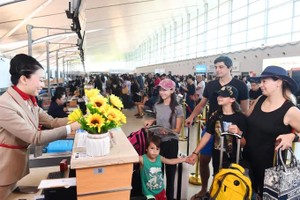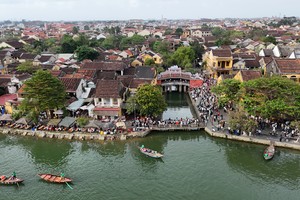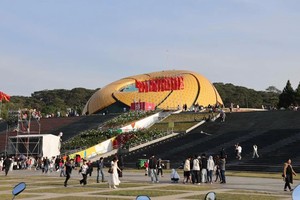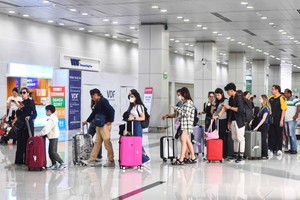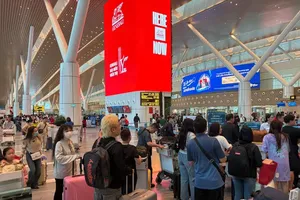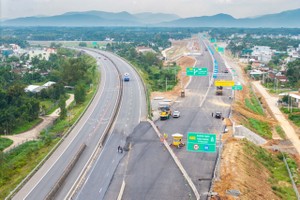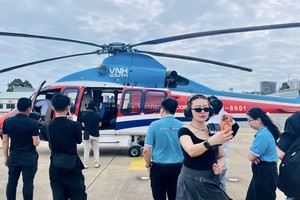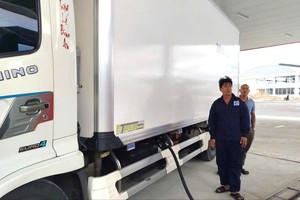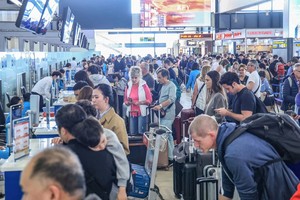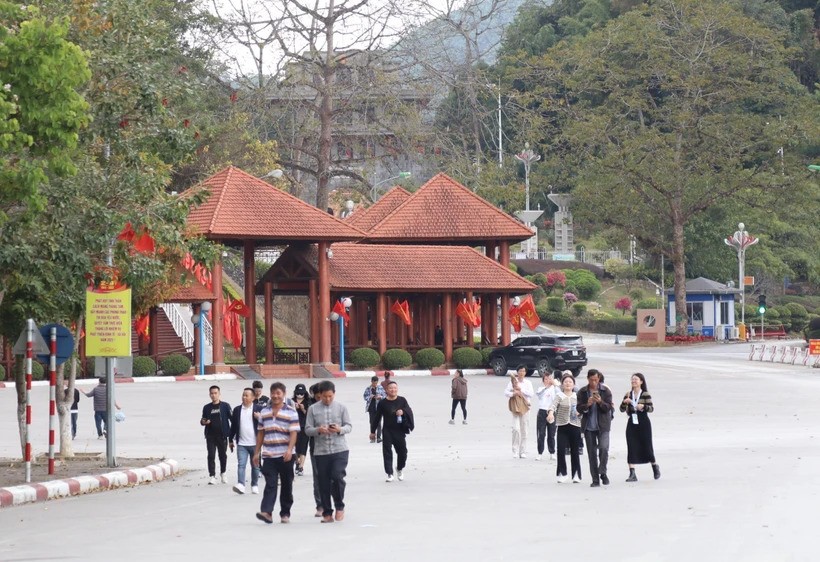
According to the Vietnam National Authority of Tourism (VNAT) under the Ministry of Culture, Sports, and Tourism, the average room occupancy rate in lodging facilitates reached nearly 50 percent, with some tourism hubs nationwide reporting even higher rates, at around 70 percent.
The limited duration of the break played a significant role in dissuading tourists from opting for leisure travel, as many preferred reuniting with their families rather than embarking on tourist excursions.
This year's travel trend highlights a budget tightening, reduced purchasing power, and a reduction in expenditures on public transport such as airplanes and trains while transport service costs hiked during peak days, said the VNAT, adding that a portion of domestic tourists contributed to a decline in in-country lodgings, as some chose to explore international destinations instead.
Foreign visitors were mostly from key markets, including the Republic of Korea (RoK), China, Japan, the US, Australia, Europe, Thailand and India.
Vietnamese tourists opting for outbound tours explored diverse destinations, including China, Taiwan (China), the RoK, Japan, and more. Outbound tours within Southeast Asia, such as Thailand, Singapore, Malaysia, held a competitive edge in terms of pricing and attracted considerable attention from Vietnamese travelers.
Airlines like Vietnam Airlines, Bamboo Airways, and Vietravel Airlines offered over 5,300 flights, providing a total of 1.06 million seats. In the railway sector, an additional 30 train services were operated, connecting Hanoi with destinations like Lao Cai, Hai Phong, Vinh and Dong Hoi.
Looking ahead, the tourism industry aims to welcome 17-18 million foreign visitors and cater to 110 million domestic travelers this year, earning a revenue of approximately VND840 trillion (US$35 billion).
